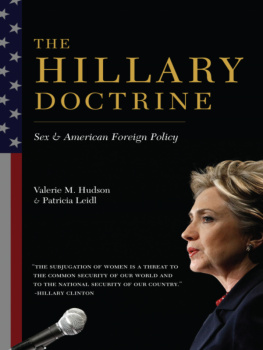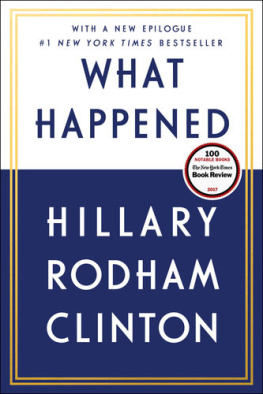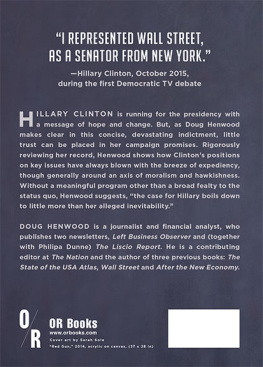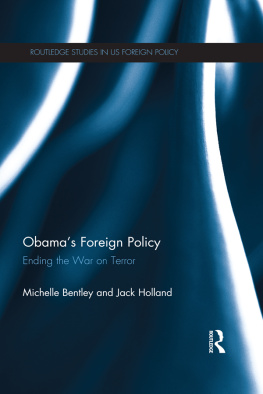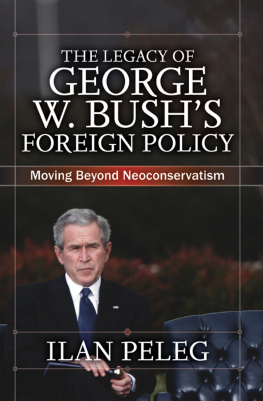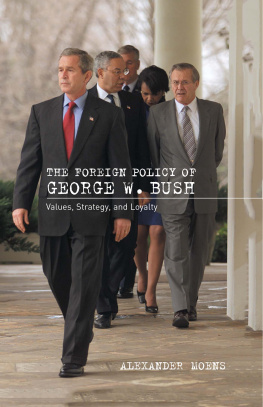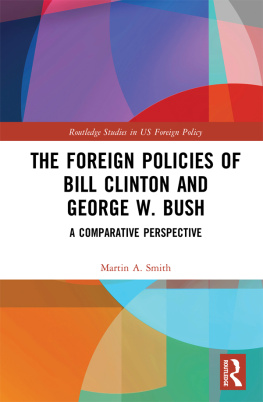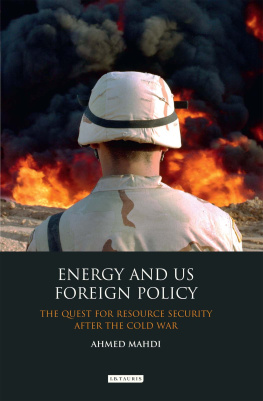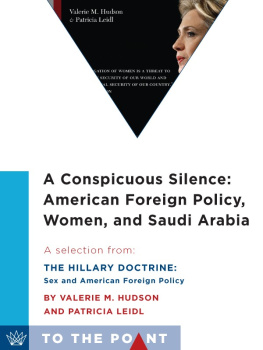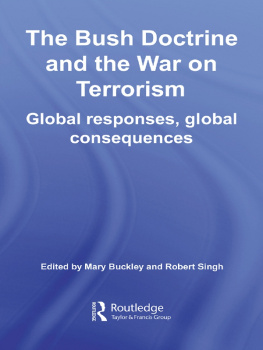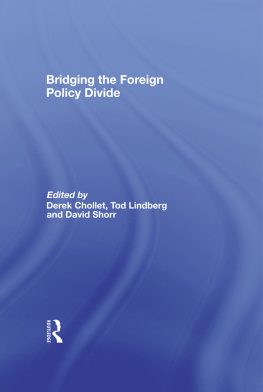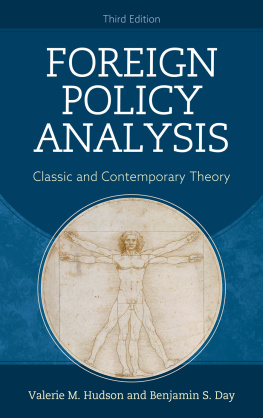THE HILLARY DOCTRINE
THE
HILLARY
DOCTRINE
Sex & American Foreign Policy
Valerie M. Hudson & Patricia Leidl
COLUMBIA UNIVERSITY PRESS
NEW YORK
Columbia University Press
Publishers Since 1893
New York Chichester, West Sussex
cup.columbia.edu
Copyright 2015 Valerie M. Hudson and Patricia Leidl
All rights reserved
E-ISBN 978-0-231-53910-4
Parts of chapter 2 are abridged from Valerie M. Hudson, Bonnie Ballif-Spanvill, Mary Caprioli, and Chad Emmett, Sex and World Peace
(New York: Columbia University Press, 2012).
Library of Congress Cataloging-in-Publication Data
Hudson, Valerie M., 1958-
The Hillary doctrine: sex and American foreign policy /
Valerie M. Hudson and Patricia Leidl.
pages cm
Includes bibliographical references and index.
ISBN 978-0-231-16492-4 (cloth: alk. paper) ISBN 978-0-231-53910-4 (e-book)
1. United StatesForeign relations. 2. United StatesPolitics and government. 3. Clinton, Hillary RodhamPolitical and social views. 4. Womens rights. 5. Women and democracy. 6. WomenSocial conditions. 7. WomenGovernment policy. 8. Sex roleGovernment policy. 9. International relationsSocial aspects.
I. Leidl, Patricia II. Title.
E183.7.H84 2015
327.73dc23
2014038206
A Columbia University Press E-book.
CUP would be pleased to hear about your reading experience with this e-book at .
Jacket Design: Jordan Wannemacher
Jacket Image: AP Images
References to websites (URLs) were accurate at the time of writing. Neither the author nor Columbia University Press is responsible for URLs that may have expired or changed since the manuscript was prepared.
I dedicate this book to my daughters and my sons; attend to the coal mine, and the canaries will be fine. (Jacob 2:3135)
Valerie M. Hudson
In memory of my mother, Joan, and twin brother, Petey, who, although no longer in this physical world, are with me every single day.
Patricia Leidl
CONTENTS
T HE PREMISE THAT we are all harmed when women are precluded from making the world safer is a fundamental and profound idea. At first glance, the foreign policy link may not be obvious, even though we are reminded at every turn that public policy decisions affect our economic and physical security in ways both apparent and invisible. We buy T-shirts from Thailand and sell U.S. semiconductors in South Korea. We worry about wounded veterans of lengthy wars, desperate Central Americans who choose to send their children north alone, and extremists detonating bombs in Boston.
But in this remarkably readable book, Valerie Hudson and Patricia Leidl push usall of usto think through the fundamental template for making decisions. In foreign policy parlance, if our leaders focus on so-called hard security issues (such as threats from nuclear pariah states or rogue fanatics) rather than on broader human security concerns, are we left less safe and prosperous than we could be?
Or, to put these questions another way, the authors ask trenchantly whether Secretary of State Hillary Clinton was seriousand, if so, was she rightin setting out her doctrine that the subjugation of women around the world is a threat to the security of the United States. Critics see this idea merely as a rhetorical or cynical stance on the part of U.S. policy makers, including Clinton herselfa posture that can be ignored in a particular case if it would undermine real American national interests. Further, some suggest that it isnt our business how other countries treat half their populations. Altruism aside, from the narrow perspective of our national interests, should Americans care?
The answer, based on a wealth of evidence and the careful analysis of these scholars, is simple: yes, if we are determined not to repeat twentieth-century wars and cataclysms.
As things stand, we havent begun the new century very capably, despite enormous efforts. After more than a decade of fighting in Afghanistan, the United States is trying to disengage from the longest war in our history. Obviously, the casus belli was the 2001 terrorist attack launched on our homelandalthough shortly after the invasion, policy makers and pundits began pointing out virtuously that a corollary benefit was the liberation of women from unimaginable oppression under Taliban rule. But Hudson and Leidl examine the idea that our engagement vis--vis Afghanistan would have been altered if we had hewed to a different method of evaluating national threats prior to 9/11.
No one claims that faithful action spurred by the Hillary Doctrine would resolve all conflicts. Clinton herself, often termed a hawk for the foreign policy decisions she has espoused, has never held out for some kind of peaceable kingdom. Instead, taking to its logical conclusion Clintons proposal to make the treatment of women a yardstick in decision making, the authors suggest that the United States and the international community would have moved against the Taliban sooner. Stopping the egregious abuses of women would not have been an afterthought, nor an excuse for an invasion already planned.
What difference would that have made to Americans? Impossible to know, butwithout minimizing the impact from military engagement anytime or anywherewe can ponder whether that modified approach might have prevented the watershed tragedy of 9/11, which brought ensuing shocks within the global community and an incalculable cost to our populations well-being.
More fundamentally, and drawing on research from a variety of disciplines, the authors explore the idea that subjugating women deprives them not simply of their safety, but of agencytheir ability to contribute to security. A country needs the option of using soft power (the traditionally feminine strengths of persuading and attracting) in addition to military force to exert its influence effectively. Hudson and Leidl make clear the direct link to enhanced stability in countries where women actively participate in public life. The landscapes surveyed are startlingly broad, ranging from discussions of developments in China, India, and Rwanda, among others, to the in-depth case studies of Afghanistan, Guatemala, and Saudi Arabia. (Here the term case study definitely isnt code for boring analysis; the stories of real people on those pages bring tears.)
For the policy maker, the academic or student, and also for the broader public searching for the right thing to do in Syria or another crisis area, a huge dilemma involves weighing the risks of action against those of inaction. Especially in the wake of the discredited intervention in Iraqbut balancing that against the worlds historically recent failures to prevent massacres in Rwanda or Bosniawere conscious of the need for a moral frame of reference. This question has haunted me for more than twenty years because, as the American ambassador to neighboring Austria, I was implicated by impotence as the United States stood by and watched Serb military forces (and far less often, their opponents forces) slaughtering civilians in Croatia and Bosnia.
The Dayton Agreement, heralded as a great success, but lacking even one woman among the negotiating teams, has been a political disaster. Scores of women Ive interviewed have told me not only this was not our war, but also that if women had been at Dayton, they would have insisted on essential on-the-ground changes, such as the guaranteed detention of local indicted war criminals, whose dangerous presence prevented refugees from returning home and kept the country divided.

